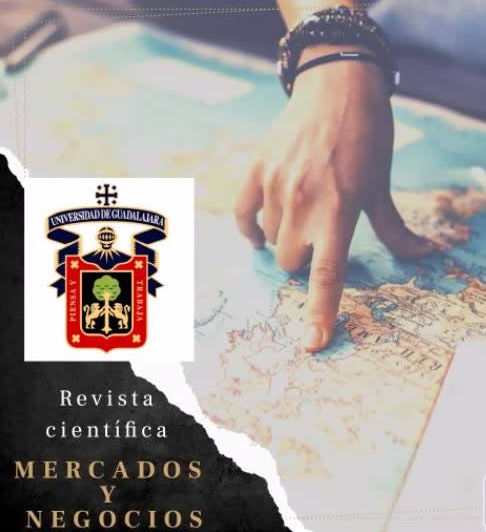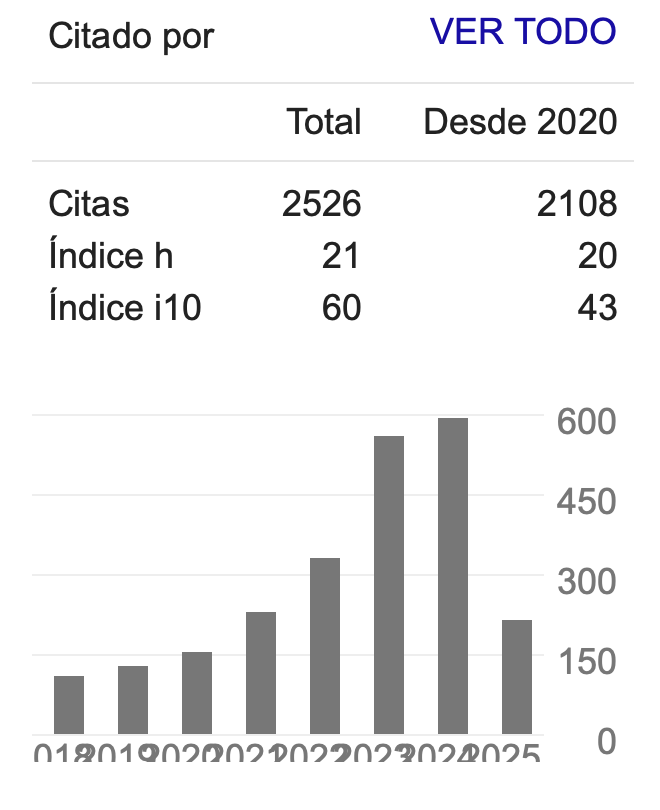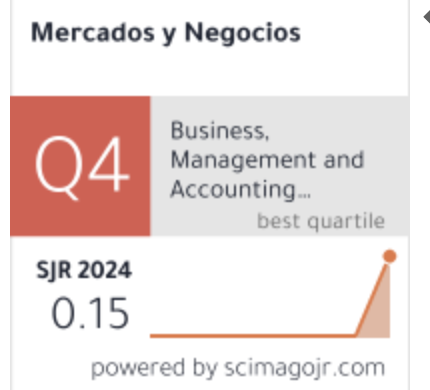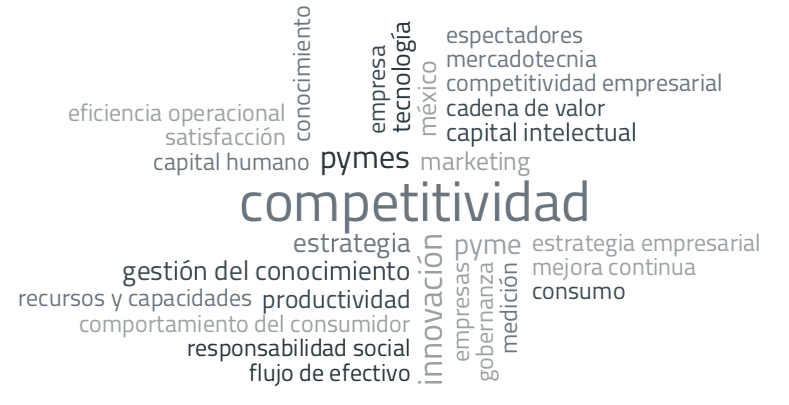Green Consumer's Paradox
DOI:
https://doi.org/10.32870/myn.vi51.7714Keywords:
green technology, collective intelligence, green consumer, informed decision, food consumptionAbstract
The paper aims to analyze the contradiction between green consumers' behavior and green technology foods offered to them. An analysis of papers from different authors showed that green consumers are willing to make conscious food consumption. However, factors like price, knowledge about the green cause, consumer income, reference groups, shopping convenience, and food availability influence their final consumption. Collective intelligence is a solution for green consumers to make better decisions: it also involves challenges, ethical considerations, and avoiding political influences on shared information. In conclusion, governments and food producers must do a lot to ensure green consumers have enough tools to make informed and sustainable alimentary decisions.References
Aithal, P., & Aithal, S. (2016). Opportunities & Challenges for Green Technologies in 21st Century. Munich Personal RePEc Archive (MPRA).
Akhila, P., Sunooj, K., Aaliya, B., Navaf, M., Sudheesh, C., George, J., & Pottakkat, B. (2022). Historical Developments in Food Science and Technology. Journal of Nutrition Research, 10(1), 36-41. https://doi.org/10.55289/jnutres/v10i1_22.12
Alam, S., Ahmad, M., Ho, Y., Omar, N., & Lin, C. (2020). Applying an Extended Theory of Planned Behavior to Sustainable Food Consumption. Sustainability, 12(20), 8394. https://doi.org/10.3390/su12208394
Alam, S., Wang, C., Masukujjaman, M., Ahmad, I., Lin, C., & Ho, Y. (2023). Buying Behaviour towards Eco-Labelled Food Products: Mediation Moderation Analysis. Sustainability, 15(3), 2474. https://doi.org/10.3390/su15032474
Ariani, M., Gantina, A., Mauludyani, A., & Suryana, A. (2021). Environmentally friendly household food consumption behavior. IOP Conference Series: Earth and Environmental Science, 892(1), 012023. https://doi.org/10.1088/1755-1315/892/1/012023
Boncinelli, F., Gerini, F., Piracci, G., Bellia, R., & Casini, L. (2023). Effect of executional greenwashing on market share of food products: An empirical study on green-coloured packaging. Journal of Cleaner Production, 391, 136258. https://doi.org/10.1016/j.jclepro.2023.136258
Boye, J., & Arcand, Y. (2013). Current Trends in Green Technologies in Food Production and Processing. Food Engineering Reviews, 5(1), 1-17. https://doi.org/10.1007/s12393-012-9062-z
Carroll, A., & Shabana, K. (2010). The Business Case for Corporate Social Responsibility: A Review of Concepts, Research and Practice. International Journal of Management Reviews, 12(1), 85-105. https://doi.org/10.1111/j.1468-2370.2009.00275.x
Dwivedi, Y., Ismagilova, E., Hughes, D., Carlson, J., Filieri, R., Jacobson, J., Jain, V., Karjaluoto, H., Kefi, H., Krishen, A., Kumar, V., Rahman, M., Raman, R., Rauschnabel, P., Rowley, J., Salo, J., Tran, G., & Wang, Y. (2021). Setting the future of digital and social media marketing research: Perspectives and research propositions. International Journal of Information Management, 59, 102168. https://doi.org/10.1016/j.ijinfomgt.2020.102168
Chen, P., & Antonelli, M. (2020). Conceptual Models of Food Choice: Influential Factors Related to Foods, Individual Differences, and Society. Foods, 9(12), 1898. https://doi.org/10.3390/foods9121898
Connolly, J., & Prothero, A. (2008). Green Consumption: Life-politics, risk and contradictions. Journal of Consumer Culture, 8(1), 117-145. https://doi.org/10.1177/1469540507086422
European Commission (2020). The European Green Deal. Striving to be the first climate-neutral continent. European Commission
Fanzo, J., Davis, C., McLaren, R., & Choufani, J. (2018). The effect of climate change across food systems: Implications for nutrition outcomes. Global Food Security, 18, 12-19. https://doi.org/10.1016/j.gfs.2018.06.001
Flatters, P., & Willmott, M. (2009). Understanding the post-recession consumer. Harvard Business Review, 87(7/8), 106-112.
Giacalone, D., & Jaeger, S. (2023). Consumer acceptance of novel sustainable food technologies: A multi-country survey. Journal of Cleaner Production, 408, 137119. https://doi.org/10.1016/j.jclepro.2023.137119
Gobierno de México (2022). El sobrepeso y la obesidad se ha incrementado en todo el mundo durante las últimas tres décadas. Servicio de Información Agroalimentaria y Pesquera. Link: https://www.gob.mx/siap/articulos/el-sobrepeso-y-la-obesidad-se-ha-incrementado-en-todo-el-mundo-durante-las-ultimas-tres-decadas?idiom=es
Higgs, S., & Thomas, J. (2016). Social influences on eating. Current Opinion in Behavioral Sciences, 9, 1-6. https://doi.org/10.1016/j.cobeha.2015.10.005
Jakubczak, A., & Gotowska, M. (2020). Green Consumerism vs. Greenwashing. European Research Studies Journal, 23(Special 2), 167-181.
Johnstone, M., & Tan, L. (2015). Exploring the Gap Between Consumers’ Green Rhetoric and Purchasing Behaviour. Journal of Business Ethics, 132(2), 311-328. https://doi.org/10.1007/s10551-014-2316-3
Joshi, Y., & Rahman, Z. (2015). Factors Affecting Green Purchase Behaviour and Future Research Directions. International Strategic Management Review, 3(1-2), 128-143. https://doi.org/10.1016/j.ism.2015.04.001
Kreidenweis, U., Lautenbach, S., & Koellner, T. (2016). Regional or global? The question of low-emission food sourcing addressed with spatial optimization modelling. Environmental Modelling & Software, 82, 128-141. https://doi.org/10.1016/j.envsoft.2016.04.020
Lartey, J. (2021). Digital Food Technologies and Our Everyday Lives: A Social Practice Analysis of Sustainable Food Consumption among Young Adults. Lund University.
Loureiro, M., & Lotade, J. (2005). Do fair trade and eco-labels in coffee wake up the consumer conscience? Ecological Economics, 53(1), 129-138. https://doi.org/10.1016/j.ecolecon.2004.11.002
McCluskey, J. (2015). Changing Food Demand and Consumer Preferences. Agricultural Symposium.
Polonsky, M. (1995). A stakeholder theory approach to designing environmental marketingstrategy. Journal of Business & Industrial Marketing, 10(3), 29-46. https://doi.org/10.1108/08858629510096201
McHugh, K., Yammarino, F., Dionne, S., Serban, A., Sayama, H., & Chatterjee, S. (2016). Collective decision making, leadership, and collective intelligence: Tests with agent-based simulations and a Field study. The Leadership Quarterly, 27(2), 218-241. https://doi.org/10.1016/j.leaqua.2016.01.001
Narula, S., & Desore, A. (2016). Framing green consumer behaviour research: Opportunities and challenges. Social Responsibility Journal, 12(1), 1-22. https://doi.org/10.1108/SRJ-08-2014-0112
Nguyen, H., Nguyen, C., & Hoang, T. (2019). Green consumption: Closing the intention‐behavior gap. Sustainable Development, 27(1), 118-129. https://doi.org/10.1002/sd.1875
Paço, A. do, Shiel, C., & Alves, H. (2019). A new model for testing green consumer behaviour. Journal of Cleaner Production, 207, 998-1006. https://doi.org/10.1016/j.jclepro.2018.10.105
Polonsky, M. (1995). A stakeholder theory approach to designing environmental marketingstrategy. Journal of Business & Industrial Marketing, 10(3), 29-46. https://doi.org/10.1108/08858629510096201
Polonsky, M. (2011). Transformative green marketing: Impediments and opportunities. Journal of Business Research, 64(12), 1311-1319. https://doi.org/10.1016/j.jbusres.2011.01.016
Pratama, F. (2022). Green Technology in Food Processing: Creating a Better Future for the Next Generation. IOP Conference Series: Earth and Environmental Science, 995(1), 012014. https://doi.org/10.1088/1755-1315/995/1/012014
Rahman, S., & Nguyen‐Viet, B. (2023). Towards sustainable development: Coupling green marketing strategies and consumer perceptions in addressing greenwashing. Business Strategy and the Environment, 32(4), 2420-2433. https://doi.org/10.1002/bse.3256
Reisch, L., Eberle, U., & Lorek, S. (2013). Sustainable food consumption: An overview of contemporary issues and policies. Sustainability: Science, Practice and Policy, 9(2), 7-25. https://doi.org/10.1080/15487733.2013.11908111
Salazar, H., Oerlemans, L., & Van Stroe-Biezen, S. (2013). Social influence on sustainable consumption: Evidence from a behavioural experiment: Social influence in sustainable consumption. International Journal of Consumer Studies, 37(2), 172-180. https://doi.org/10.1111/j.1470-6431.2012.01110.x
Shen, X., Xu, Q., & Liu, Q. (2022). Predicting sustainable food consumption across borders based on the theory of planned behavior: A meta-analytic structural equation model. PLOS ONE, 17(11), e0275312. https://doi.org/10.1371/journal.pone.0275312
Smelser, N., & Baltes, P. (Eds.). (2001). International encyclopedia of the social & behavioral sciences (1st ed). Elsevier.
White, K., Hardisty, D., & Habib, R. (2019). People say they want sustainable products, but they don’t tend to buy them. Here’s how to change that.
Willett, W., Rockström, J., Loken, B., Springmann, M., Lang, T., Vermeulen, S., Garnett, T., Tilman, D., DeClerck, F., Wood, A., Jonell, M., Clark, M., Gordon, L., Fanzo, J., Hawkes, C., Zurayk, R., Rivera, J., De Vries, W., Majele Sibanda, L., … Murray, C. J. (2019). Food in the Anthropocene: The EAT–Lancet Commission on healthy diets from sustainable food systems. The Lancet, 393(10170), 447-492. https://doi.org/10.1016/S0140-6736(18)31788-4
Xu, Z., Sun, D., Zeng, X., Liu, D., & Pu, H. (2015). Research Developments in Methods to Reduce the Carbon Footprint of the Food System: A Review. Critical Reviews in Food Science and Nutrition, 55(9), 1270-1286. https://doi.org/10.1080/10408398.2013.821593
Yang, X., & Lo, K. (2021). Environmental health research and the COVID-19 pandemic: A turning point towards sustainability. Environmental Research, 197, 111157. https://doi.org/10.1016/j.envres.2021.111157
Zhang, B., & Zhang, B. (2018). Precise marketing of precision marketing value chain process on the H group line based on big data. Journal of Intelligent & Fuzzy Systems, 35(3), 2837-2845. https://doi.org/10.3233/JIFS-169637
Published
How to Cite
Issue
Section
License
Copyright (c) 2023 Almeirim Isabel Acosta Bahena

This work is licensed under a Creative Commons Attribution-NonCommercial 4.0 International License.
Mercados y Negocios by Department of Mercadotecnia y Negocios Internacionales. University of Guadalajara is licensed under a License Creative Commons Attribution-NonCommercial 4.0 International.
The author retains the copyright.








